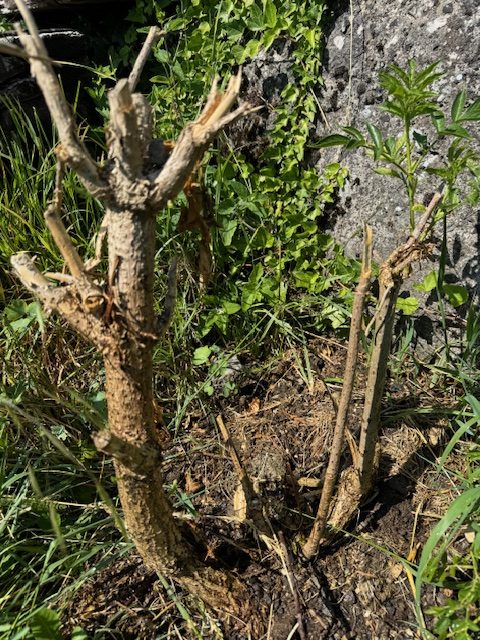A few weeks ago, I dug up a bush from one place in my garden, trying to save as many of the roots as possible, then carried it over to another spot, where I would prefer it grew. I dug a hole, placed the bush into the hole, filled it around with soil and watered it copiously. This is the literal definition of the word ‘transplant’.
But it is not, by a longshot, how most people use the word, because in the modern world, very few of us spend our time moving plants from one place to another. Often we think of organ ‘transplants’. Or the idea of transplanting a family, ethnic group or business organisation from one physical or conceptual location to another. In fact, most people today, when they use the word ‘transplant’, probably don’t even think about the fact that they are using it in a figurative or metaphorical sense.

Another example is the expression ‘to sow one’s wild oats’, referring to a young man who travelled without a fixed destination and engaged in sexual relations. A century or more ago, most would have understood the full nuance of the expression. Wild oats (avena fatua) are a grain that is similar to cultivated common oat (avena sativa), but blown by the wind, they spread their seed in an uncontrolled manner and yield no productive harvest. Thus, ‘sowing your wild oats’ was immediately understood to be a dangerous, reckless, and potentially ruinous pursuit. But today, this nuance is lost on the agriculturally ignorant urbanites who trot out the phrase.
The same is true for my transplanted bush. Right now, its main root is buried in the soil, but it is not well fixed and could easily be pulled out. I hope that it will slowly sprout new roots, binding with the new soil, before pushing up fresh branches and leaves. The scars of the brutal transplantation will never go away, but over time it will hopefully survive and flourish in its new location. All of these nuances, which apply equally to the figurative senses of the word, are sadly lost on the large percentage of the population who do not garden. The are not getting the full value from the metaphor – the sense of fragility; the need to first rebuild roots before further visible growth is possible.
And what’s true for bushes and oats is true for a whole host (or ‘hostile army’) of words. Most of the vocabulary we use today ossified (or ‘turned to bone’) at a time in history when certain technologies, like horseriding, were in full trot (or ‘moving along at a brisk, steady if somewhat jerky pace’). With modernity, our language is no longer well anchored (or ‘tethered to a weight at sea’) to, for example, the strong maritime past of our forebears; instead we have drifted (‘flowed’ or ‘moved with the stream’) from these visceral metaphors. In this way, the words have lost some of the richness of their subtext. And as our daily experiences become further and further removed from the physical (agrarian, industrial, nautical) world in which our language was cultivated (or ‘grown with care’), the metaphors will become ever more abstract and flavourless to us.
For sure, there are new technologies that level up (‘increase a character’s level, hit points and other powers in a video game’) the language, but I would swipe left (‘summarily dismiss on a dating app’) on the idea that they will trend (‘climb the rankings on a social media platform’) for very long. Mostly, these terms are an abstraction of an abstraction, they are niche (‘a small cavity in a wall’), and quickly fall out of currency.
What remains to those who would wish to marry (‘join in spiritual union’) metaphor and the life experience on which it is based? Well, you have only to don a pair of gardening gloves, volunteer to muck out the local horse stables or otherwise get your hands dirty.
I imagine not many readers will be chomping at the bit to do so.


